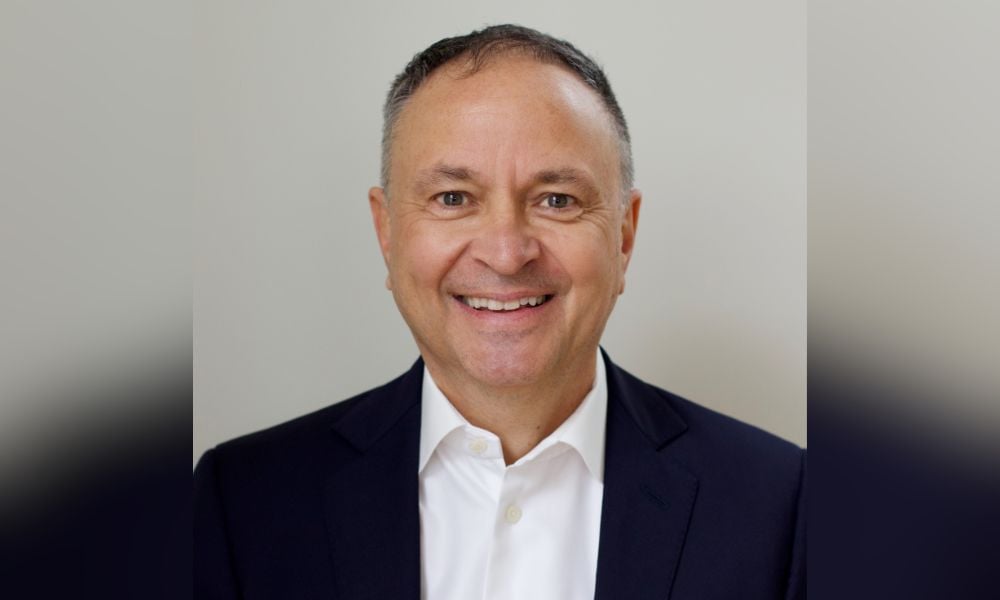New entity a merger of HBR Consulting, LAC Group, Wilson Allen and other acquisitions

As the legal profession adapts to the complex changes it faces as a result of business and economic challenges, artificial intelligence and other disruptive technology, it will likely need to rely more on consultants and experts to help guide the way, says the global head of integration for legal services provider Harbor Global.
“I think every managing partner and every firm is looking for a competitive edge,” says Mario Theriault. “They’re highly curious as to what their peers are doing, and they may all be pursuing the same growth strategy, sometimes in similar marketplaces, so they need points of differentiation.”
By providing “one-stop-shopping” to law firms on several fronts, Theriault says consulting services such as Harbor can help law firms achieve their growth objectives through a holistic overview of products, intelligence, and strategies.
“All of our services might not apply to every single firm, but we can help find solutions towards their goal to achieve ten percent growth, for example, or integrate AI, improve culture and gather research efficiently.”
HBR Consulting, LAC Group, and Wilson Allen recently announced the launch of Harbor, the melding of the three companies along with several key acquisitions: Aurora North and Younts Consulting – with teams specializing in legal tech applications and cloud migration – and AI-focused contracts intelligence specialist KP Labs. As a combined entity, Harbor serves more than 80 percent of Global 200 law firms and 50 percent of the Fortune 500 companies.
In announcing the merged entity, Harbor CEO Matt Sunderman said: “The legal industry is facing a period of complex change. Business and economic challenges have made it imperative that law firms and law departments operate as efficiently as possible while investing in future growth."
He also noted that technological advances like generative AI and a rapidly evolving landscape of cloud applications present new challenges and opportunities “to get ahead of the competition.”
As an example, Theriault says many law firms are grappling with how to formulate strategies regarding generative AI. As part of a consulting engagement, Theriault notes that Harbor experts can assess clients’ AI-readiness – the state of their data, where their data resides in the cloud and on-premises – and the extent to which operational processes can be adapted to have the greatest impact.
With 650 consultants and technology experts, Moncton, New Brunswick-based Theriault says Harbor can provide guidance, strategy, and legal tech tools to make the most of current innovations and advise on what will come.
In the area of technology, for instance, Theriault says Harbor can advise on tools ranging from billing systems to customer relation management. “But we’re not a software company, so we are agnostic in the sense that we look at all tools to find the best ones for our clients.”
Harbor, headquartered in Chicago, provides information services, research, market intelligence, and procurement services, such as negotiating contracts on a firm’s behalf. Another service it offers is strategy and insight, helping law firms benchmark themselves against the industry.
Theriault says Harbor already has a strong presence in Canada, with about ten percent of its employees based here, many of whom came to the merged firm from acquired companies, such as LAC Group. They include Theriault and CFO Jae Cornelssen.
While New Brunswick is the primary location for its intelligence services (LAC Group), Harbor also has a presence in Ontario and other provinces. It plans to move into a larger location in Moncton in mid-September.
Harbor also has a substantial presence in the United Kingdom, which works well with the New Brunswick office because the time difference is only five hours.
Theriault says he started as a journalist working out of Toronto but returned to his home province of New Brunswick to start an information and intelligence firm that would track the market on behalf of clients. It then grew into an intelligence firm serving the Canadian and US markets. Four years ago, Theriault sold his firm to LAC Group based in Los Angeles.
Theriault says the Moncton base is a plus because it can draw on talent from the many universities in Atlantic Canada – graduates of liberal arts programs who can read, write and think.
“The East Coast became a good fit for the type of work required and the type of skills that graduates of the local schools provide.”
He adds that combining with a large firm such as Harbor also helps with the “war for talent.” Offering recruits the opportunity to be part of a larger talent pool provides growth opportunities they might otherwise not get.










